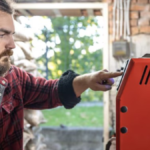Navigating an insurance claim can feel like stepping into a maze with no clear direction. Between paperwork, phone calls, policy language, and unexpected delays, many policyholders find themselves overwhelmed before they’ve even submitted their claim. Seeking help is a wise decision, especially when trying to recover from a property loss, accident, or disaster. However, asking for help doesn’t always mean the process will go smoothly, especially if common mistakes are made along the way. From miscommunication to misunderstood policies, small missteps can turn into big setbacks. We will explore the top mistakes people often make when seeking insurance claims help and how to avoid them. Whether you’ve had property damage in Fort Myers or a vehicle accident elsewhere, learning what not to do is just as important as knowing what to do.
Top Mistakes That Delay or Complicate Insurance Claims Help
- Waiting Too Long to File a Claim
One of the most frequent and damaging mistakes is delaying the start of your claim. Many people underestimate how quickly deadlines approach or assume they have more time than they do. In Florida and other states, insurance companies often have strict timeframes for reporting damage or losses. Waiting too long can result in denial or reduced payouts simply because the claim wasn’t filed within the required period. In Fort Myers, for example, weather-related claims tend to increase during hurricane season, adding pressure to file claims promptly. Seeking help from claims adjusters in Fort Myers early in the process can make a significant difference, ensuring that documentation is handled correctly and critical deadlines are met.
Insurance companies may also interpret delays as signs that the damage is unrelated to the incident or less severe than claimed. Even worse, if temporary repairs or additional damage occur during the waiting period, the insurer may refuse to cover it. Always report damage as soon as possible—even if you’re still gathering information or awaiting an inspection. Time matters, and hesitation can work against you.
- Failing to Understand the Policy Before Requesting Help
Another common error is reaching out for help without first reviewing your insurance policy. While it’s not necessary to be fluent in every clause and term, a basic understanding of your coverage, limits, deductibles, and exclusions is critical. Too often, people assume their policy covers more than it does, or they fail to realize that certain situations are excluded. This leads to frustration and confusion when working with adjusters, contractors, or claim professionals. For instance, some policies cover water damage from burst pipes but exclude flood damage from rising groundwater.
Without knowing these details, you might seek help from the wrong type of claims support or invest time in documentation that ultimately won’t be accepted. Taking even 30 minutes to skim through your coverage or calling your provider to clarify specifics can prevent major misunderstandings. When you do seek outside help, having a basic handle on your policy strengthens your position and communication.
- Not Documenting the Damage Properly
One of the biggest reasons claims are delayed or denied is a lack of documentation. If you’re seeking help from a public adjuster or claims advocate, the more evidence you can provide, the better. This includes photos of the damage from multiple angles, videos (if possible), receipts for emergency repairs, and a written inventory of lost or destroyed items. Many people assume the adjuster will do all of this for them, but that’s a risky approach.
Adjusters sent by your insurance company often assess damage based on their guidelines, which may not reflect the full scope of your loss. Having your evidence strengthens your claim and supports the evaluation process. Even before help arrives, ensure that you secure clear, dated records. And don’t throw anything away prematurely; damaged items may be essential for the investigation. A well-documented claim is harder to dispute and easier to support.
- Trusting the Insurance Company Adjuster to Represent You
While insurance company adjusters play a necessary role, they do not work for you. Their job is to assess damage and determine what the company should pay, not necessarily what you need to recover fully. Many policyholders mistakenly assume that the adjuster is a neutral party or even an advocate for their interests. This misunderstanding can lead to accepting lowball settlements, overlooking policy benefits, or skipping steps in the claim process. In Fort Myers, where storm damage can be significant, relying solely on a company adjuster may mean missing out on a fair payout.
Getting help from a public adjuster or independent claims professional who works on your behalf can provide a more balanced view. They can challenge valuations, advocate for proper documentation, and help interpret policy language. It’s not about creating conflict—it’s about making sure you have someone in your corner who understands the process and prioritizes your recovery.
Getting help with an insurance claim should make the process easier, not harder. Yet, simple missteps can turn a straightforward claim into a long, frustrating battle. By avoiding these errors, you put yourself in a much stronger position to receive the full and fair compensation you’re entitled to. Whether you’re navigating the claims process in Fort Myers or elsewhere, remember that knowledge, documentation, and proactive communication are your greatest tools. With the right mindset and support, your recovery can be smoother, faster, and far more secure.







